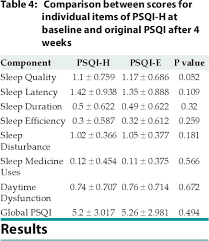Improving Sleep: Tips for a Restful Night
Sleep plays a vital role in our overall health and well-being. Yet, many of us struggle to get the quality rest we need each night. If you find yourself tossing and turning or waking up feeling tired, implementing some simple changes to your routine can help improve your sleep quality. Here are some tips for a restful night:
Establish a Bedtime Routine
Creating a consistent bedtime routine signals to your body that it’s time to wind down and prepare for sleep. Try to go to bed and wake up at the same time every day, even on weekends.
Create a Relaxing Environment
Your bedroom should be a peaceful sanctuary conducive to sleep. Keep it dark, quiet, and cool. Consider using earplugs or a white noise machine if you’re easily disturbed by outside noises.
Avoid Stimulants Before Bed
Avoid caffeine, nicotine, and heavy meals close to bedtime as they can disrupt your sleep. Instead, opt for herbal tea or warm milk to help you relax before going to bed.
Limit Screen Time
The blue light emitted by screens can interfere with your body’s production of melatonin, the hormone that regulates sleep. Try to avoid screens at least an hour before bedtime or use blue light filters on your devices.
Exercise Regularly
Regular physical activity can help promote better sleep. Aim for at least 30 minutes of exercise most days of the week, but avoid vigorous exercise close to bedtime as it may be stimulating.
Manage Stress
Stress and anxiety can make it difficult to fall asleep. Practice relaxation techniques such as deep breathing, meditation, or gentle yoga before bed to calm your mind and body.
Seek Professional Help if Needed
If you continue to have trouble sleeping despite trying these tips, consider seeking help from a healthcare provider or sleep specialist. They can help identify any underlying issues affecting your sleep and recommend appropriate treatments.
By incorporating these tips into your daily routine, you can improve the quality of your sleep and wake up feeling refreshed and rejuvenated each morning.
Six Benefits of Better Sleep: Boosting Health, Mood, and Productivity
- Enhances overall health and well-being
- Boosts cognitive function and mental clarity
- Supports emotional balance and mood regulation
- Strengthens immune system function
- Improves memory consolidation and learning abilities
- Increases energy levels and productivity throughout the day
Challenges to Consider When Improving Your Sleep Habits
- Initial adjustment period to new sleep habits may be challenging
- Some sleep improvement methods may require time and effort to see results
- Changes in routine or environment for better sleep may disrupt existing habits
- Certain medical conditions or medications can affect the effectiveness of sleep improvement strategies
- Improving sleep may involve trial and error to find what works best for individual needs
Enhances overall health and well-being
Improving sleep not only rejuvenates the body and mind but also enhances overall health and well-being. Quality sleep is essential for various bodily functions, including immune system regulation, hormone balance, and cognitive performance. Adequate rest allows the body to repair and regenerate cells, promoting physical health and vitality. Additionally, quality sleep supports mental well-being by improving mood, concentration, and decision-making abilities. Prioritizing good sleep habits can lead to a healthier, more balanced lifestyle with long-term benefits for both physical and mental health.
Boosts cognitive function and mental clarity
Improving sleep not only enhances our physical well-being but also boosts cognitive function and mental clarity. Adequate, restful sleep allows our brain to consolidate memories, process information, and make decisions effectively. When we prioritize quality sleep, we experience improved focus, sharper thinking, better problem-solving skills, and overall enhanced mental performance. A well-rested mind is better equipped to handle daily challenges and tasks with clarity and efficiency.
Supports emotional balance and mood regulation
Improving sleep not only benefits physical health but also plays a crucial role in supporting emotional balance and mood regulation. Adequate, restful sleep allows the mind to process emotions effectively, enhancing resilience to stress and promoting a more stable mood throughout the day. When well-rested, individuals are better equipped to manage their emotions, make sound decisions, and maintain a positive outlook on life. Prioritizing quality sleep can significantly contribute to overall emotional well-being and mental health.
Strengthens immune system function
Improving sleep strengthens immune system function by allowing the body to effectively regulate and produce essential immune cells and proteins. During deep sleep stages, the immune system works to repair and defend against harmful pathogens, viruses, and bacteria. Adequate rest supports the body’s ability to mount a robust immune response, enhancing overall immunity and reducing the risk of infections and illnesses. Prioritizing quality sleep is crucial for maintaining a strong and resilient immune system that can effectively protect against various health threats.
Improves memory consolidation and learning abilities
Improving sleep not only enhances our physical well-being but also boosts our cognitive functions. Adequate and quality sleep plays a crucial role in memory consolidation and learning abilities. During sleep, the brain processes and stores information gathered throughout the day, strengthening neural connections that aid in memory retention and learning. By prioritizing good sleep habits, we can optimize our brain’s ability to absorb new information, improve problem-solving skills, and enhance overall cognitive performance.
Increases energy levels and productivity throughout the day
Improving sleep can significantly boost energy levels and enhance productivity throughout the day. When we get an adequate amount of restful sleep, our bodies have the opportunity to recharge and rejuvenate, leading to increased alertness, focus, and mental clarity. With higher energy levels, we are better equipped to tackle daily tasks efficiently and effectively, leading to improved overall productivity in both our personal and professional lives. Prioritizing quality sleep can be a game-changer in optimizing performance and achieving success in various aspects of life.
Initial adjustment period to new sleep habits may be challenging
Adjusting to new sleep habits can be challenging initially. When trying to improve sleep, it may take time for your body and mind to adapt to a different bedtime routine or environment. You might experience difficulty falling asleep or staying asleep as your internal clock adjusts. It’s important to be patient with yourself during this transition period and understand that consistency is key in establishing healthy sleep patterns. With perseverance and commitment, the initial challenges of adjusting to new sleep habits can lead to long-term benefits for your overall well-being.
Some sleep improvement methods may require time and effort to see results
It’s important to acknowledge that some sleep improvement methods may require time and effort before tangible results are noticed. Implementing lifestyle changes, such as establishing a consistent bedtime routine, reducing screen time before sleep, or practicing relaxation techniques, can take time to become habits and show significant improvements in sleep quality. Patience and persistence are key when embarking on a journey to improve sleep, as consistency in following these methods is essential for long-term benefits. Remember that investing time and effort in prioritizing good sleep habits can lead to better overall health and well-being in the long run.
Changes in routine or environment for better sleep may disrupt existing habits
Making changes to your routine or environment in order to improve sleep can sometimes disrupt existing habits and patterns that your body has become accustomed to. While the intention behind these changes is to promote better sleep quality, such alterations may initially cause discomfort or resistance as your body adjusts to the new conditions. It’s important to be patient and allow time for your mind and body to adapt to the changes, understanding that the short-term disruption may lead to long-term benefits in terms of improved sleep health and overall well-being.
Certain medical conditions or medications can affect the effectiveness of sleep improvement strategies
Certain medical conditions or medications can present a significant challenge when trying to improve sleep quality. Conditions such as chronic pain, sleep apnea, restless leg syndrome, or mental health disorders can disrupt sleep patterns and make it harder to benefit from traditional sleep improvement strategies. Additionally, certain medications, such as those for depression, asthma, or high blood pressure, may have side effects that impact sleep quality. In these cases, it is important to work closely with healthcare providers to develop a tailored approach that addresses the underlying medical issues while also incorporating effective sleep management strategies.
Improving sleep may involve trial and error to find what works best for individual needs
Improving sleep can present a challenge as it often involves a process of trial and error to determine what strategies work best for individual needs. What works well for one person may not necessarily be effective for another. This variability in responses to different sleep-improvement methods can make the journey to better sleep a bit unpredictable and require patience and persistence in finding the right approach that suits each person’s unique circumstances.




